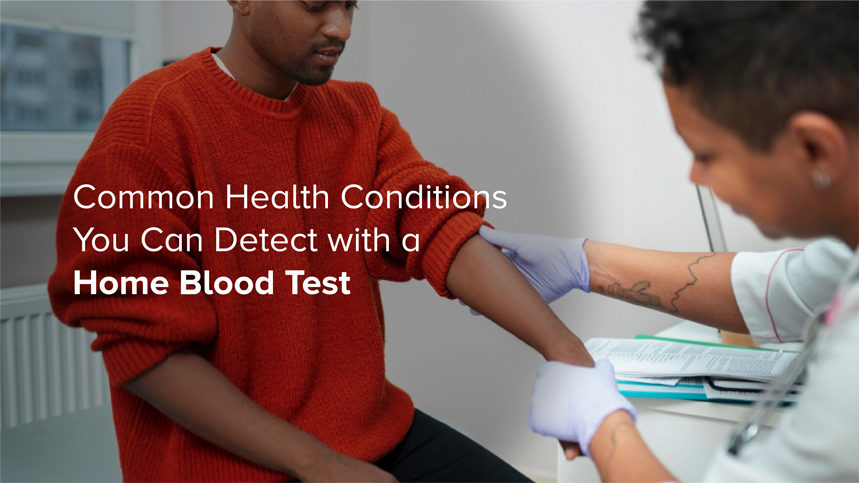


Condition
- Others
- Others
- Others
- Others
- Others
- Others
- Others
- Others
- Others
- Others
- Others
- Others
- Others
- Others
- Others
- Others
- Others
- Others
- Others
- Others
- Others
- Others
- Others
- Others
- Others
- Others
- Others
- Others
- Others
- Others
- Others
- Others
- Others
- Others
- Others
- Others
- Others
- Others
- Others
- Others
- Others
- Others
- Top tests
- Top tests
- Top tests
- Top tests
- Top tests
- Top tests
- Top tests
- Top tests
- Top tests
- Preventive Health Checkup
- Top tests
- Top tests
- Top tests
- Top tests
- Blood Banking & Transfusion
- Lifestyle Packages
- Blood Banking & Transfusion
- Blood Banking & Transfusion
- Top tests
- Top tests
- Lifestyle Packages
- Diabetes
- Blood Banking & Transfusion
- Blood Banking & Transfusion
- Blood Banking & Transfusion
- Blood Banking & Transfusion
- Blood Banking & Transfusion
- Others
- Others
- Others
- Others
- Blood Banking & Transfusion
- Blood Banking & Transfusion
- Blood Banking & Transfusion
- Blood Banking & Transfusion
- Vitamin Deficiency
- Vitamin Deficiency
- Vitamin Deficiency
- Vitamin Deficiency
- Vitamin Deficiency
- Blood Banking & Transfusion
- Blood Banking & Transfusion
- Blood Banking & Transfusion
- Blood Banking & Transfusion
- Diabetes
- Diabetes
- Heart Disease & Hypertension
- Preventive Health Checkup
- Diabetes
- Preventive Health Checkup
- Preventive Health Checkup
- Diabetes
- Diabetes
- Heart Disease & Hypertension
- Top tests
- Heart Disease & Hypertension
- Diabetes
- Top tests
- Diabetes
- Heart Disease & Hypertension
- Lifestyle Packages
- Heart Disease & Hypertension
- Lifestyle Packages
- Heart Disease & Hypertension
- Heart Disease & Hypertension
- Lifestyle Packages
- Preventive Health Checkup
- Preventive Health Checkup
- Top tests
- Preventive Health Checkup
- Heart Disease & Hypertension
- Heart Disease & Hypertension
- Heart Disease & Hypertension
- Top tests
- Top tests
- Lifestyle Packages
- Heart Disease & Hypertension
- Heart Disease & Hypertension
- Top tests
- Heart Disease & Hypertension
- Preventive Health Checkup
- Diabetes
- Lifestyle Packages
- Heart Disease & Hypertension
- Top tests
- Heart Disease & Hypertension
- Heart Disease & Hypertension
- Diabetes
- Lifestyle Packages
- Preventive Health Checkup
- Diabetes
- Top tests
- Diabetes
- Allergy
- Heart Disease & Hypertension
- Diabetes
- Heart Disease & Hypertension
- Diabetes
- Lifestyle Packages
- Lifestyle Packages
- Top tests
- Preventive Health Checkup
- Lifestyle Packages
- Preventive Health Checkup
- Preventive Health Checkup
- Diabetes
- Top tests
- Heart Disease & Hypertension
- Preventive Health Checkup
- Top tests
- Heart Disease & Hypertension
- Lifestyle Packages
- Lifestyle Packages
- Diabetes
- Preventive Health Checkup
- Top tests
- Diabetes
- Top tests
- Preventive Health Checkup
- Preventive Health Checkup
- Preventive Health Checkup
- Diabetes
- Lifestyle Packages
- Lifestyle Packages
- Heart Disease & Hypertension
- Lifestyle Packages
- Heart Disease & Hypertension
- Lifestyle Packages
- Preventive Health Checkup
- Preventive Health Checkup
- Preventive Health Checkup
- Lifestyle Packages
- Top tests
- Lifestyle Packages
- Top tests
- Lifestyle Packages
- Top tests
- Diabetes
- Diabetes
- Others
- Blood Disorders
- Top tests
- Others
- Others
- Others
- Fever
- Fever
- Blood Disorders
- Blood Disorders
- Preventive Health Checkup
- Preventive Health Checkup
- Profile
- Kidney Disease
- Kidney Disease
- Diabetes
- Diabetes
- Heart Disease & Hypertension
- Preventive Health Checkup
- Lifestyle Packages
- Thyroid Disorder
- Diabetes
- Diabetes
- Diabetes
- Diabetes
- Diabetes
- Diabetes
- Diabetes
- Top tests
- Allergy
- Top tests
- Top tests
- Top tests
- Top tests
- Diabetes
- Top tests
- Diabetes
- Top tests
- Top tests
- Top tests
- Liver Disease
- Diabetes
- Top tests
- Vitamin Deficiency
- Top tests
- Top tests
- Liver Disease
- Top tests
- Top tests
- Top tests
- Anemia
- Anemia
- Anemia
- Diabetes
- Diabetes
- Anemia
- Top tests
- Top tests
- Top tests
- Preventive Health Checkup
- Thyroid Disorder
- Heart Disease & Hypertension
- Top tests
- Preventive Health Checkup
- Diabetes
- Heart Disease & Hypertension
- Top tests
- Fever
- Allergy
- Liver Disease
- Lifestyle Packages
- Heart Disease & Hypertension
- Top tests
- Arthritis
- Top tests
- Top tests
- Heart Disease & Hypertension
- Kidney Disease
- Preventive Health Checkup
- Allergy
- Top tests
- Lifestyle Packages
- Top tests
- Kidney Disease
- Top tests
- Lifestyle Packages
- Top tests
- Preventive Health Checkup
- Preventive Health Checkup
- Top tests
- Top tests
- Vitamin Deficiency
- Allergy
- Diabetes
- Top tests
- Top tests
- Top tests
- Top tests
- Heart Disease & Hypertension
- Allergy
- Top tests
- Preventive Health Checkup
- Top tests
- Top tests
- Infertility
- Top tests
- Lifestyle Packages
- Allergy
- Diabetes
- Heart Disease & Hypertension
- Lifestyle Packages
- Preventive Health Checkup
- Preventive Health Checkup
- Top tests
- Preventive Health Checkup
- Top tests
- Diabetes
- Top tests
- Infertility
- Top tests
- Thyroid Disorder
- Top tests
- Allergy
- Preventive Health Checkup
- Vitamin Deficiency
- Top tests
- Top tests
- Infertility
- Lifestyle Packages
- Diabetes
- Liver Disease
- Kidney Disease
- Vitamin Deficiency
- Top tests
- Heart Disease & Hypertension
- Heart Disease & Hypertension
- Top tests
- Heart Disease & Hypertension
- Heart Disease & Hypertension
- Heart Disease & Hypertension
- Infertility
- Heart Disease & Hypertension
- Vitamin Deficiency
- Vitamin Deficiency
- Arthritis
- Arthritis
- Top tests
- Top tests
- Lifestyle Packages
- Preventive Health Checkup
- Lifestyle Packages
- Preventive Health Checkup
- Vitamin Deficiency
- Top tests
- Lifestyle Packages
- Lifestyle Packages
- Preventive Health Checkup
- Top tests
- Preventive Health Checkup
- Top tests
- Heart Disease & Hypertension
- Infertility
- Top tests
- Top tests
- Preventive Health Checkup
- Lifestyle Packages
- Top tests
- PCOD
- Preventive Health Checkup
- Lifestyle Packages
- Preventive Health Checkup
- Top tests
- Fever
- PCOD
- Kidney Disease
- Top tests
- Top tests
- Preventive Health Checkup
- Preventive Health Checkup
- Liver Disease
- Thyroid Disorder
- Top tests
- Heart Disease & Hypertension
- PCOD
- Top tests
- Arthritis
- Preventive Health Checkup
- Kidney Disease
- Lifestyle Packages
- Top tests
- Allergy
- Top tests
- Top tests
- Diabetes
- Thyroid Disorder
- Preventive Health Checkup
- Top tests
- Lifestyle Packages
- Preventive Health Checkup
- Top tests
- Kidney Disease
- Liver Disease
- Infertility
- Top tests
- Anemia
- Top tests
- Top tests
- Top tests
- Preventive Health Checkup
- Bone Health
- Cancer
- Fatty Liver

Tests
Vitamin B1, also known as thiamine, is an essential nutrient that plays a critical role in energy metabolism and the proper functioning of the nervous system. As a water-soluble vitamin, it is not stored in the body and must be regularly consumed through diet. A deficiency in this vital nutrient can lead to significant health complications, affecting various bodily functions.
Role of Vitamin B1 in the Body
Thiamine is a crucial coenzyme in the catabolism of sugars and amino acids, converting food into usable energy. It is also indispensable for the nervous system:
- Supports neurotransmitter synthesis for nerve signal transmission.
- Maintains the myelin sheath that surrounds nerves for efficient communication.
Deficiency disrupts these processes, leading to neurological and cardiovascular problems.
Symptoms of Vitamin B1 Deficiency
Symptoms progress gradually and are categorized by affected systems: nervous system (dry beriberi) and cardiovascular system (wet beriberi).
Neurological Symptoms (Dry Beriberi)
- Peripheral Neuropathy: Tingling, numbness, burning pain in hands and feet, muscle weakness, difficulty walking.
- Wernicke-Korsakoff Syndrome: Severe brain disorder from chronic thiamine deficiency, often linked to alcohol misuse.
- Wernicke's Encephalopathy: Acute phase with confusion, ataxia, abnormal eye movements or double vision; medical emergency.
- Korsakoff Syndrome: Chronic phase with severe memory loss, inability to form new memories, confabulation.
Cardiovascular Symptoms (Wet Beriberi)
- Rapid heart rate (tachycardia) due to reduced pumping efficiency.
- Shortness of breath from fluid buildup in the lungs.
- Swelling of lower legs (edema) due to poor circulation.
- Congestive heart failure in advanced cases.
Common Causes of Thiamine Deficiency
- Inadequate Dietary Intake: Diets low in thiamine, such as polished white rice staples. Thiamine-rich foods include whole grains, legumes, nuts, seeds, pork, fish, and fortified cereals.
- Alcohol Misuse: Chronic alcohol consumption interferes with absorption and storage of thiamine.
- Medical Conditions:
- Gastrointestinal diseases (Crohn's, celiac disease, chronic diarrhea)
- Bariatric surgery affecting nutrient absorption
- HIV/AIDS leading to poor nutrition and higher metabolic demands
- Chronic kidney disease with dialysis causing vitamin loss
- Certain medications like diuretics increasing thiamine excretion
Diagnosing and Treating Vitamin B1 Deficiency
Diagnosis involves physical examination, medical history, dietary assessment, and lab tests, including blood thiamine levels or erythrocyte transketolase activity assay.
Treatment depends on severity:
- Mild Deficiency: Oral thiamine supplements as per doctor's prescription.
- Severe Deficiency: Intravenous (IV) or injectable thiamine for rapid absorption, especially in Wernicke-Korsakoff syndrome.
Addressing the underlying cause, dietary changes, alcohol use treatment, and management of co-existing medical conditions is essential for long-term prevention.
Conclusion
Vitamin B1 deficiency is serious but preventable and treatable. Recognizing symptoms, understanding causes, and adopting a nutrient-rich diet help protect nervous and cardiovascular health. Consult a healthcare professional if you suspect a deficiency to receive proper diagnosis and treatment, ensuring your body gets the essential nutrients it needs.
WANT TO BOOK HEALTH CHECKUP ?
Categories
Others
50
Top tests
100
Preventive Health Checkup
46
Blood Banking & Transfusion
16
Lifestyle Packages
35
Diabetes
40
Vitamin Deficiency
12
Heart Disease & Hypertension
37
Allergy
9
Blood Disorders
3
Fever
4
Profile
1
Kidney Disease
8
Thyroid Disorder
5
Liver Disease
6
Anemia
5
Arthritis
4
Infertility
6
PCOD
3
Bone Health
1
Cancer
1
Fatty Liver
1
Recent Blogs
Common Health Conditions You Can Detect with a Home Blood Test
Home blood testing has transformed how we monitor our health, making medical diagnostics...
01-10-2025
Vitamin C During Pregnancy – Why It’s Important for Mother & Baby
A well-balanced diet is fundamental to a healthy pregnancy, providing the essential nutrients...
01-10-2025
Foods Rich in Vitamin B12: A Complete Guide for Better Nutrition
Vitamin B12 stands as one of the most critical nutrients for optimal health, yet millions...
01-10-2025







